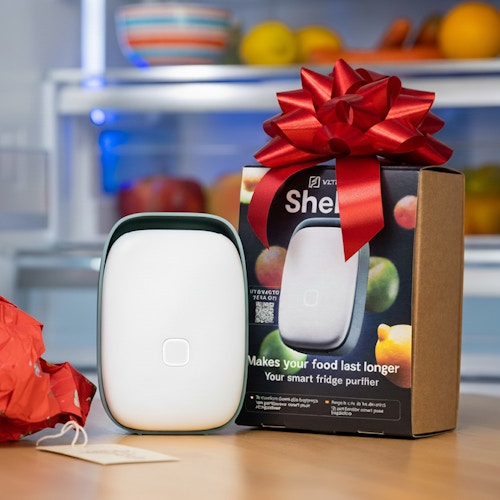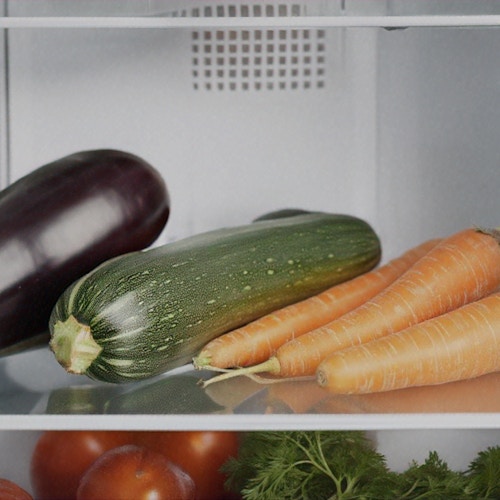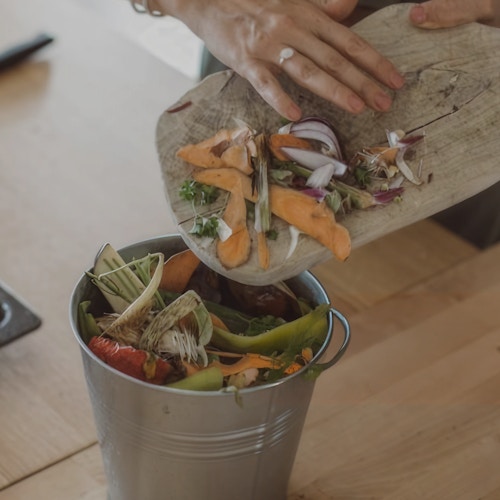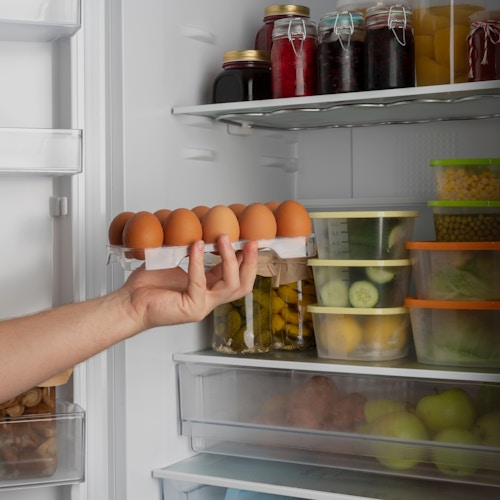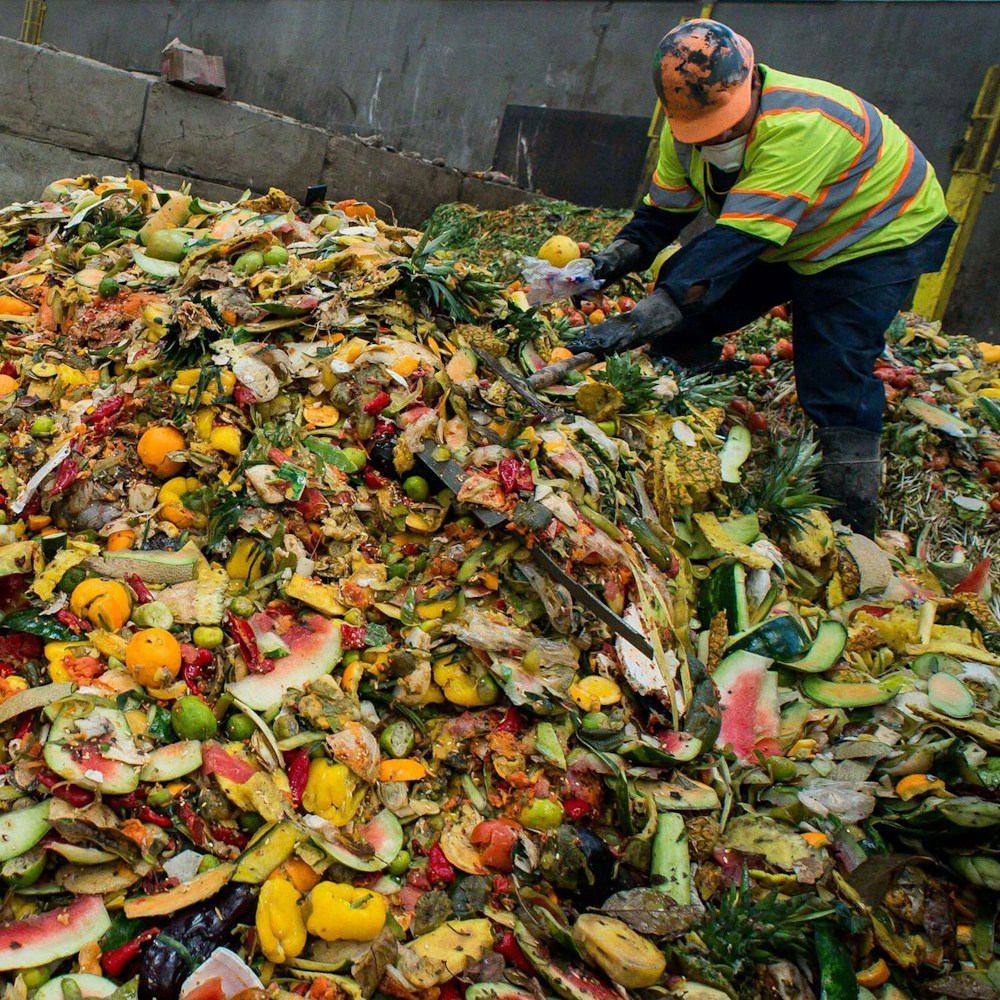
10 Practical tips to reduce food waste in everyday life
→
Discover 10 effective tips to reduce food waste, save money, and extend the life of your groceries with smart habits and tools like Shelfy by Vitesy.
- Why reducing Food Waste matters more than ever
- Plan your meals and shop smart
- Store food Properly to extend freshness
- Learn the difference between expiry and best-before dates
- Use leftovers creatively
- Organize your fridge for visibility and efficiency
- Understand ethylene gas and food ripening
- Freeze excess food before it goes bad
- Compost food scraps
- Donate food you won’t use
- Invest in food-saving technology
Why reducing Food Waste matters more than ever
Reducing food waste is not only a way to save money, it's a powerful act that supports sustainability and helps combat climate change. Every year, households around the world throw away tons of food that could have been consumed, reused, or preserved. From over-purchasing to poor storage habits, waste often stems from avoidable mistakes.
Fortunately, a few simple changes in daily routines can make a significant difference. Whether you're looking to lower your grocery bill or lessen your environmental impact, these ten practical tips will help you reduce food waste right at home.
Plan your meals and shop smart
One of the biggest contributors to food waste is buying too much. Without a clear plan, groceries often sit unused until they spoil. Start by mapping out your meals for the week and making a shopping list based on what you actually need.
Tips:
- Check your pantry and fridge before shopping.
- Stick to your list to avoid impulse purchases.
- Use meal planning apps to organize meals around ingredients with shorter shelf lives.
Store food properly to extend freshness
How you store your food can drastically affect its longevity. Use clear containers so you can see what’s inside, and keep perishables at the right temperatures.
Top tip: Place high-ethylene-producing foods (like bananas, apples, and tomatoes) away from ethylene-sensitive items (like lettuce and cucumbers).
For an even more effective solution, try Shelfy by Vitesy, an innovative air purifier designed for refrigerators. It extends the shelf life of fruits and vegetables by up to 12 days, reduces odors by 80%, and eliminates 99% of bacteria in just 10 minutes.

Learn the difference between expiry and best-before dates
“Best-before” does not mean “unsafe after.” Many foods are still good past their best-before date, especially dry or canned goods.
Actionable step: smell and inspect food before discarding. Use your senses and judgment, don't just rely on the date.
Use leftovers creatively
Leftovers are often overlooked. Instead of tossing them out, repurpose them into new meals. Yesterday’s roast can become today’s sandwich or salad.
Inspiration:
- Soups and stews using leftover vegetables and proteins
- Stir-fries from rice and random fridge finds
- Omelets or frittatas with mixed ingredients
Organize your fridge for visibility and efficiency
Cluttered fridges hide forgotten foods. Use the FIFO rule: First In, First Out.
Place older items in front so they're used first.
Shelfy enhances this by maintaining a cleaner and more hygienic fridge environment. Its odor-reduction and air purification functions keep food fresher for longer, even in the back of the fridge.
Understand Ethylene Gas and food ripening
Ethylene gas accelerates the ripening of fruits and vegetables, often leading to premature spoilage. Separating ethylene-sensitive items from emitters can extend freshness.
Products like Shelfy actively neutralize ethylene in the fridge using photocatalysis, reducing waste without any extra effort on your part.
Freeze excess food before it goes bad
If you won’t eat it in time, freeze it. Freezing preserves food and minimizes spoilage, especially for bread, meat, and fruit.
Quick tips:
- Label containers with contents and date
- Use freezer-safe, airtight packaging
- Portion food before freezing for easy thawing
Compost food scraps
Even with the best intentions, some waste is inevitable. Composting turns scraps into nutrient-rich soil instead of sending them to the landfill.
Consider:
- Indoor compost bins for apartments
- Community composting programs
- Using compost for garden or houseplants
Donate food you won’t use
Non-perishable food that you won’t consume can often be donated. Many local food banks accept canned goods, dry items, and unopened perishables within the date.
Resources:
- Local food banks and charities
- Food-sharing apps like OLIO or Too Good To Go
Invest in food-saving technology
Smart home tools can automate many food preservation processes. From vacuum sealers to AI-powered fridges, technology is helping households reduce waste.
Leading the charge is Shelfy by Vitesy, a compact and eco-conscious fridge air purifier. Unlike standard odor absorbers, Shelfy uses washable photocatalytic filters to destroy bacteria, neutralize ethylene gas, and drastically extend food freshness, all with minimal maintenance.

Reducing food waste is within everyone’s reach. From meal planning to fridge organization and embracing technologies like Shelfy, these 10 tips can make your kitchen more efficient, your wallet heavier, and your environmental footprint lighter.
Ready to start? Choose one tip to implement today and take a step toward a more sustainable tomorrow.
